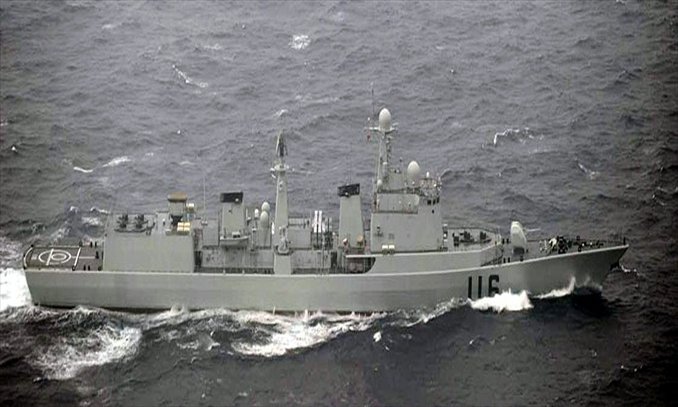China to keep close tabs on US-Japan island drill

China said Wednesday it will keep a close watch on a reportedly planned US-Japan military drill simulating the recapture of an island, amid the China-Japan dispute over the Diaoyu Islands, calling on Tokyo and Washington to do more for regional peace and stability.
Meanwhile, US Deputy Secretary of State Bill Burns arrived in China late Tuesday for a two-day visit after his trip to Japan.
Analysts said Washington has been attempting to use high-level official visits to persuade the two countries to seek a way out of the islands dispute, but at the same time is highlighting its regional interests through the joint military drill.
Safeguarding peace, stability and prosperity in the Asia-Pacific region serves the interests of all relevant parties and any move to deliberately push military or security agendas or strain regional tensions will not help improve security trust in the region, Chinese foreign ministry spokesman Hong Lei told reporters at a regular press briefing in Beijing.
The Japanese Asahi Shimbun newspaper, quoting government sources, said Monday that the US and Japan will hold the drill on Irisunajima Island in Okinawa Prefecture early next month.
The training to retake an occupied island follows a similar amphibious exercise the GSDF and the Marine Corps conducted in Guam in September, the report said.
Hong said in the press conference that China will keep a close watch over the situation and reserves the right to respond.
Japan's defense ministry said Wednesday that seven Chinese warships, including frigates, a guided missile destroyer, a refueler and two submarine rescue vessels, were spotted about 49 km from the island of Yonaguni in Okinawa Prefecture, close to the Diaoyu Islands.
The Chinese Ministry of National Defense told the Global Times on Wednesday that the Chinese warship's regular drill in these waters is completely legal.
Liu Gang, a scholar at the Okinawa University, told the Global Times that Chinese warships were only sailing in waters near the medium sea line between China and Japan and this is in accordance with international law. "Japan sought to play up China's threat amid the island dispute," he said.
The reports of the planned Japan-US drill came as the US Deputy Secretary of State is visiting East Asia. When meeting Japanese Foreign Minister Koichiro Gemba in Tokyo on Tuesday, Burns said the US position is that it will not interfere or play the role of mediator in the spat.
"But I don't think that is the role Washington really wants to play at the moment. Washington hopes to step in to cool down the tension and it will have the ability to influence Japan," Geng Xin, deputy director of the Tokyo-based Japan-China Communication Institute, told the Global Times. "Prolonged regional tension is against US interests."
"But at the same time it would like to underscore the US-Japan military alliance and the US military presence in order to maintain regional dominance. For the US, the two targets are compatible," Geng said.
Gemba claimed in his talks with Burns that there are no territorial issues between China and Japan over the Diaoyu Islands, hoping the US could understand Japan's stance on the issue, although Beijing has repeatedly urged Tokyo to respect the fact that previous leaders of the two countries had reached a consensus to "put aside the disputes" over the islands.
Shinzo Abe, the newly elected leader of Japan's opposition Liberal Democratic Party, also met with Burns. Abe said there was no room for talks on the Diaoyu Islands.
The statements by Gemba and Abe show that Japan is still holding a hardline stance on the issue and is not making moves toward reaching a diplomatic solution, but such an attitude will not change the facts, Geng said.